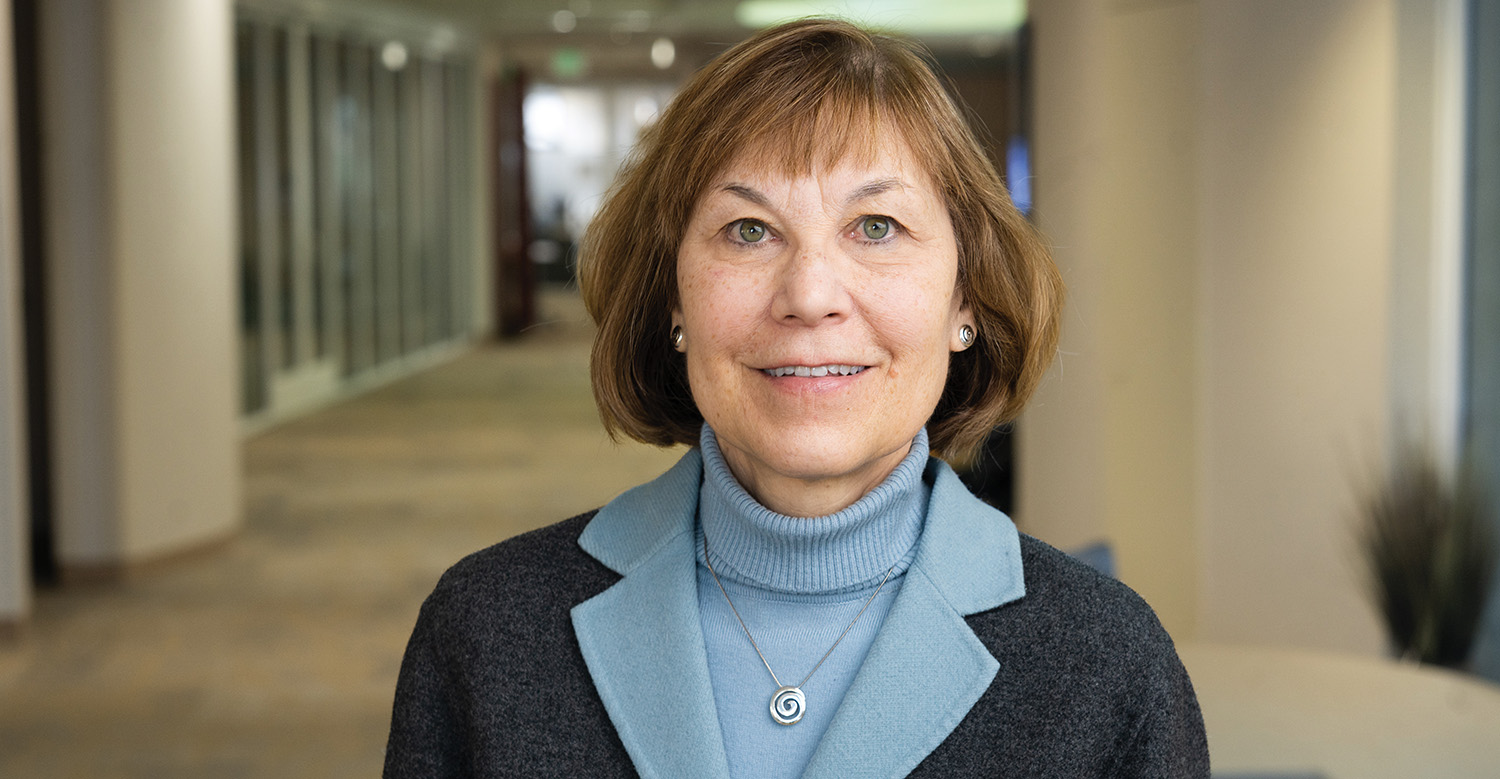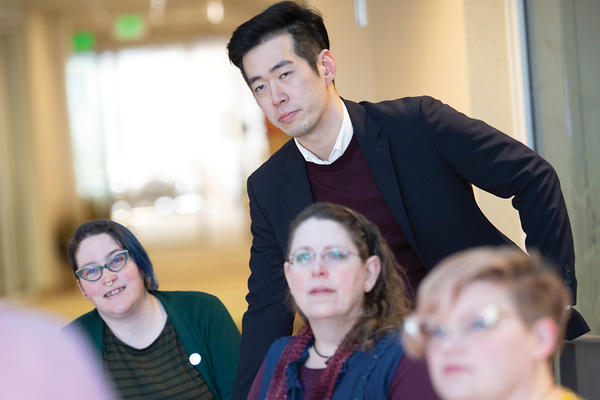Graying prison population raises questions about end-of-life care
Survey explores care of people in prison with chronic and life-limiting illness
May 9, 2022
Brett Stursa

Susan O'Conner-Von
There are 1.2 million people living in 1,800 state prisons in the U.S., with the number of incarcerated older people rapidly increasing because of longer sentences.
The Prison Policy Initiative found that there is four times the number of people in prison who are 55 and older than there was in 1993, which is largely attributed to tough on crime sentencing.
“We know that older adults living in prisons are among the most powerless, marginalized and vulnerable citizens in the United States,” says Professor Susan O’Conner-Von, PhD, RN-BC, CNE, FNAP. They have a much higher prevalence of chronic and comorbid illnesses such as hypertension, asthma, cancer and hepatitis than the general population and a higher prevalence of cogitative impairment along with dementia.
Meanwhile prisons were generally designed for a younger, healthier population, which presents challenges for providing health care to people with complex needs and for providing end-of-life care.
O’Conner-Von, whose expertise is hospice and palliative care, led a research project in partnership with Patricia Berry, PhD, CNP, FAAN, to better understand current practices and policies regarding care of people in prison with chronic and life-limiting illness.
The research, Advance Care Planning For People In Prison: A National Survey Of State Correctional Health Care Providers, was supported by a grant from the Rita and Alex Hillman Emergent Innovations: Serious Illness and End of Life Program. Completed before the COVID pandemic, the research included conducting a national web-based survey, with a total of 1,055 prison health care providers responding.
Results showed that 62% of prison health care providers reported no end-of-life program at the prison and that on average three people per prison per year were offered compassionate release. On average, four people were transferred outside the prison with days or weeks to live. Most prisons offered modified visitation for those with months or weeks to live.
In terms of health care directives, which are legal instructions regarding preference for medical care after someone is unable to make decisions for themselves, 85% responded that people in prison were offered the opportunity to complete a health care directive. O’Conner-Von adds that it was unclear how many people in prison actually completed a health care directive.
Physicians were most often responsible for facilitating the completion of a health care directive, often after the diagnosis of a chronic condition. Results showed that 63% reported that a person living in prison can designate a health care agent, who can advocate for them when they are not able to speak for themselves. Only 11% reported they allowed peers, fellow people in prison, to be a health care agent for another person in prison.
“Our results revealed that some prisons do utilize advance care planning, however only a small sample indicated that all prisoners upon admission are offered to complete a health care directive,” says O’Conner-Von. “To ensure health equity for this population we suggest a national model policy to assure all people in prison have access to advance care planning on admission, when health changes, when diagnosed with a life-limiting condition while they have decisional capacity and access to end-of-life care programs within all prisons.”
Results of the survey were presented at the Center for Bioethics Ethics Grand Rounds, which aims to shine a light on critical health equity issues.
John Song, an associate professor in the Center for Bioethics, passed away as the project was beginning. “The work is dedicated to the memory of John Song. His passion and commitment to social justice is interwoven in this work and served as an inspiration for the research team daily,” says O’Conner-Von.
In addition to O’Conner-Von and Berry, the interprofessional research team included Sarah Kettering, MPH; Rebecca Shlafer, PhD, MPH; Paul Galchutt, MPH, MDiv, BCC; Rebecca Freese, MS; and CLA student Ali Bouterse.

